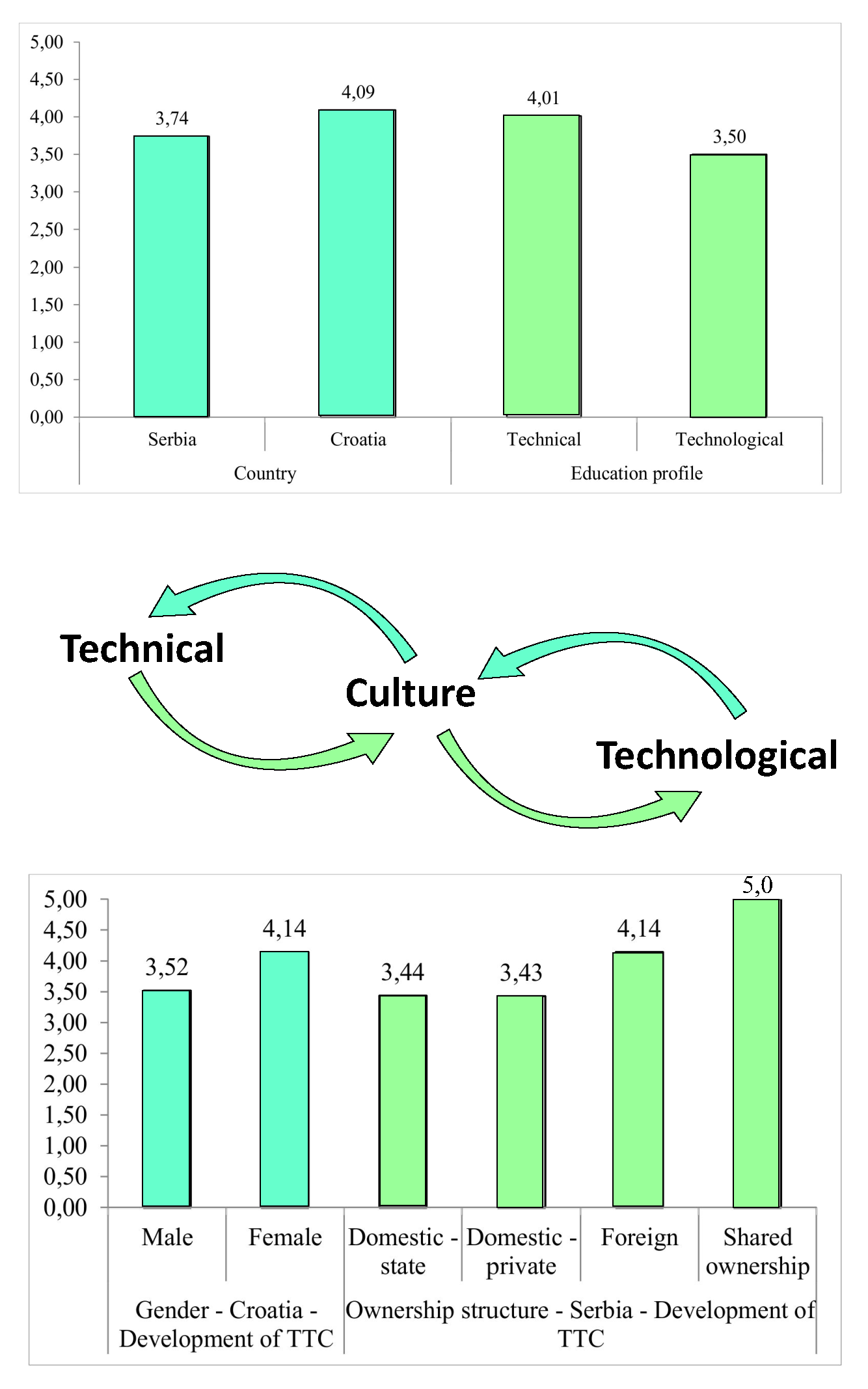Chemical engineering in technical and technological culture Scientific paper
Main Article Content
Abstract
Modern technologies continuously change humans and their relationship with the environment. They can achieve a lot in the field of chemical engineering, thereby improving and enhancing the quality of human life, but on the other hand, technologies can be used to destroy human lives. Technical and technological culture (hereinafter referred to as TTC) is the entirety of social achievements in the field of technical and technological sciences and their application, as well as of the all knowledge and skills needed to understand the achievements, use them correctly, transfer them to the younger generation and create new values in this field. This paper will present a pilot study aimed to examine the attitudes and beliefs of engineers, Technological (chemical engineering) and Technical faculties, regarding the development of TTC and to determine socio-demographic factors that may influence its development. The research was conducted in Serbia and Croatia. The results indicate that the most important aspects of TTC are: the development of awareness of sustainable development, the impact on environmental protection, etc. The respondents recognized the ethical challenges we face today, the need for the education of young engineers and the promotion of TTC in the media and professional public.
Downloads
Metrics
Article Details

This work is licensed under a Creative Commons Attribution 4.0 International License.

Authors retain copyright and grant the journal right of first publication with the work simultaneously licensed under a Creative Commons Attribution license 4.0 that allows others to share the work with an acknowledgement of the work's authorship and initial publication in this journal.
Funding data
-
Ministarstvo Prosvete, Nauke i Tehnološkog Razvoja
Grant numbers 451-03-47/2023-01/200156
References
L. F. M. Franco, A. C. da Costa, A. F. de Almeida Neto, A. M. Moraes, E. B. Tambourgi, E. A. Miranda, G. J. de Castilho, G. Doubek, J. V. H. Dangelo, L. V. Fregolente, L. M. F. Lona, L. G. de La Torre, L. A. Alvarez, M. C. da Costa, P. F. M. Martinez, R. Ceriani, R. J. Zemp, R. P. Vieira, R. M. Filho, S. S. V. Vianna, S. M. A. Bueno, M. G. A. Vieira, R. S. Suppino, Educ. Chem. Eng. 44 (2023) 21 (https://dx.doi.org/10.1016/j.ece.2023.04.001)
J. Didier, in Science, Technology and Innovation Culture, M. Chouteau, J. Forest, C. Nguyen, Eds., ISTE Ltd., London, 2018 (https://dx.doi.org/10.1002/9781119549666.ch7)
D. Gomez-Rios, H. Ramirez-Malule, N. Marriaga-Cabrales, Educ. Chem. Eng. 44 (2023) 181 (https://dx.doi.org/10.1016/j.ece.2023.06.002)
M. A. Ballesteros, J. S. Sanchez, N. Ratkovich, J. C. Cruz, L. Reyes, Educ. Chem. Eng. 35 (2021) 8 (https://dx.doi.org/10.1016/j.ece.2020.12.004)
D. G. Broo, O. Kaynak, S. M. Sait, J. Ind. Inf. Integr. 25 (2022) 100311 (https://dx.doi.org/10.1016/j.jii.2021.100311)
A. Lunev, I. Petrova, V. Zaripova, Eur. J. Eng. Educ. 38 (2013) 543 (https://dx.doi.org/10.1080/03043797.2013.824410)
M. G. Evdokimova, in IEEHGIP, Z. Anikina, Ed., LNNS volume 131, Springer Nature, 2022, pp. 558–568 (https://dx.doi.org/10.1007/978-3-030-47415-7_59)
A. Naumoska, H. Dimeski, M. Stojanovska, J. Serb. Chem. Soc. 88 (2023) 563 (https://doi.org/10.2298/JSC211228088N)
M. K. Wyrwicka, A. Chuda, Logforum 15 (2019) 279 (https://dx.doi.org/10.17270/J.LOG.2019.319)
M. K. Wyrwicka, Hum. Factor. Ergonom. Man. Service Ind. 21 (2011) 178 (https://dx.doi.org/10.1002/hfm.20254)
D. E. Leidner, T. Kayworth, MIS Q. 30 (2006) 357 (https://dx.doi.org/10.2307/25148735)
Lj. Popovic, Dj. Cosic, S. Popov, J. Mechatron. Autom. Identif. Technol. 7 (2022) 1 (http://jmait.org/wp-content/uploads/JMAIT-Vol-7-1-1-7.pdf)
E. Rubtsova, I. Bogolyubova, G. Starodubtseva, S. Lyubaya, IOP Conference Series: Earth and Environmental Science 315 (2019) 022002, San Francisco, CA (https://dx.doi.org/10.1088/1755-1315/315/2/022002)
C. Borri, E. Guberti, F. Maffioli, in Proceedings of the SEFI 37th Annual Conference, Rotterdam, Netherlands, 2009, Code: 112544
B. Godin, Y. Gingras, Pub. Understand. Sci 9 (2000) 43 (https://dx.doi.org/10.1088/0963-6625/9/1/303)
D. Purkovic, STEMp technique: Occupational standards and qualification standards, University of Rijeka, Polytechnic Study, Rijeka, Croatia, 2022 (ISBN 978-953-7720-57-5, available at: https://www.bib.irb.hr/1185690)
I. Holik, I. D. Sanda, Int. J. Eng. Pedagog. 10 (2020) 20 (https://dx.doi.org/10.3991/ijep.v10i5.13727)
S. Mekala, C. Harishree, R. Geetha, JEET 34 (2020) 76 (https://dx.doi.org/10.16920/jeet/2020/v34i2/150740)
N. Mendez, C. Castillo, D. Suarez, M. A. Castilla-Bolanos, in Proceedings of the International Astronautical Congress, IAC, 2022, Paris, France (ISSN 00741795, available in: (https://iafastro.directory/iac/paper/id/72277/summary/).





